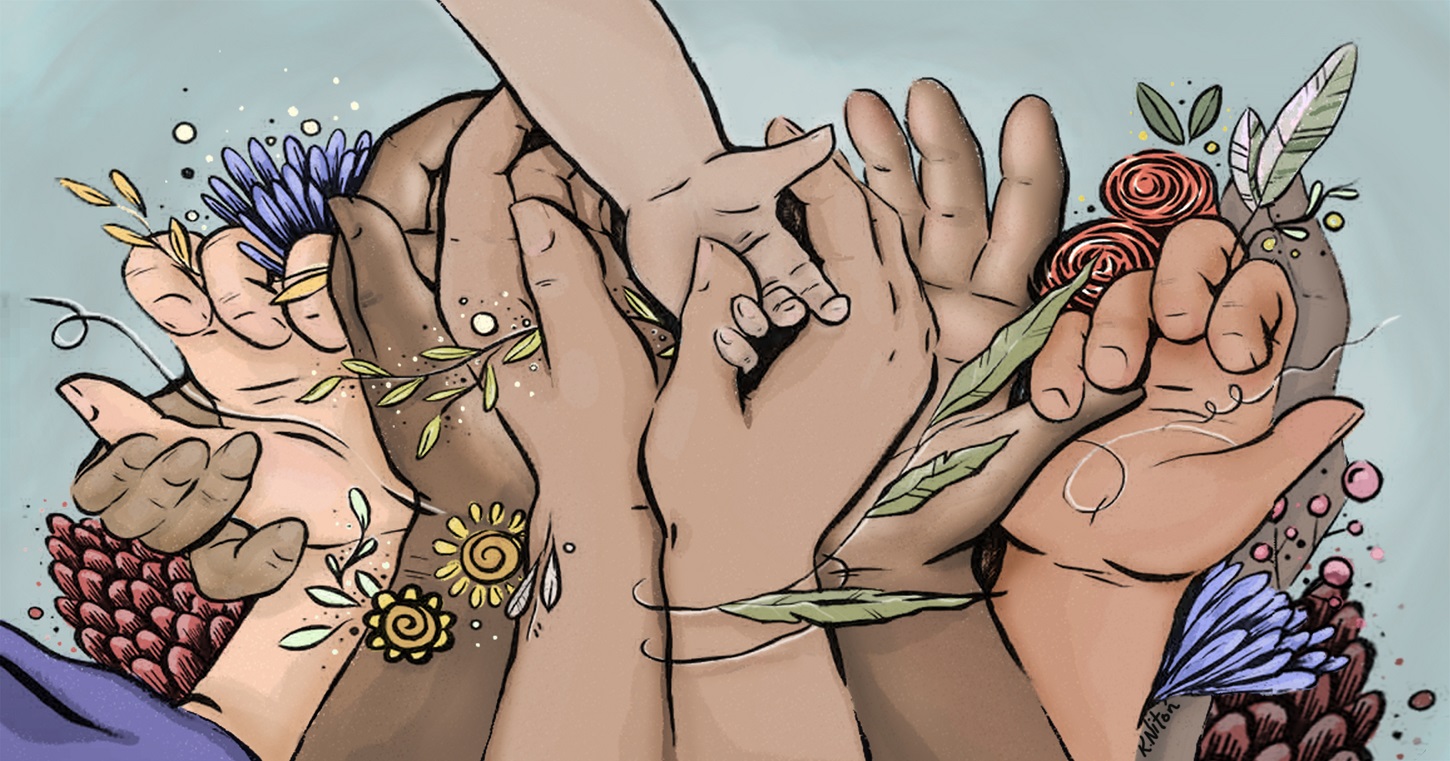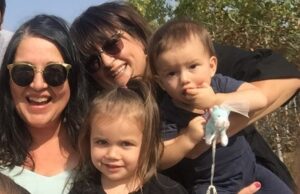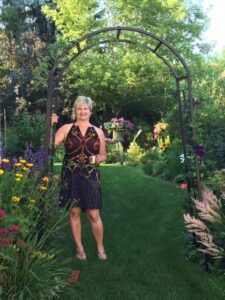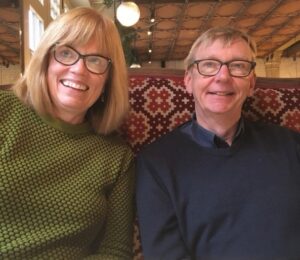Meditations on motherhood, mental illness, and resiliency

Subscribe to Catalyst
Subscribe to get our magazine delivered right to your inbox
Related Articles
Subscribe to Catalyst
Subscribe to get our magazine delivered right to your inbox
Related Articles
Featuring: MHCC board directors Carole Shankaruk, Kellie Garrett, and Cheryl Fraser
It’s easy to make assumptions about people based on their academic accomplishments, professional successes, or philanthropic contributions. But sometimes if you pull back the curtain, you discover untold depths and hardships that reveal a more valuable story than a five-sentence biography can.
A recent Zoom conversation with three Mental Health Commission of Canada (MHCC) board directors is a powerful reminder that the most important accomplishments may be the ones without accolades.
The passion for mental health shared by Carole Shankaruk, Kellie Garrett, and Cheryl Fraser was born from deeply personal experiences. For each woman, walking through a place of darkness has motivated them to be the light for others.
Accidental advocates

Carole Shankaruk
All three women calling in seemed to be visibly collecting their thoughts before recounting their personal journeys — which undoubtedly unfolded more neatly in retrospect than in reality.
“I’ll be honest,” said Shankaruk from her home near Winnipeg, “part of me was dreading this conversation. Reliving the past can bring up so many painful emotions.”
Rather than bury them or hold back, though, she brandished her Kleenex and began relating the story that changed her life. As a clinical social worker, Shankaruk thought she had the necessary tools to handle whatever motherhood might throw her way.
“But when it’s your own child who is suffering, who’s in pain, you might as well throw the playbook out the window.”
At age seven, the debilitating pain her son Noah had been experiencing was diagnosed as Crohn’s disease, an ailment that causes a notoriously painful inflammation of the bowel.
In Fraser’s case, the journey began only a few months after her son Jamie was born. “He started to appear constantly frustrated, he wasn’t eating properly, and then his development seemed to slow down,” she said. “The doctors couldn’t find anything medically wrong with him, but we knew he needed help, and more importantly he needed someone to advocate for him.”
A mother’s love (and guilt)

Kellie Garrett
One of the first things Shankaruk recalls was the difficulty of dealing with her son’s pain. “We tried so hard to manage it, but it interfered with virtually everything.” She remembers feeling tremendous guilt, a burden she still bears today. “Did I intervene forcefully enough? Was there more I could have been doing?”
As she expressed this thought, tentatively at first, she was encouraged by Garrett, an executive coach, speaker, and consultant, calling from her home in Regina.
“Oh, the guilt!” she said. “As mothers, I don’t know if we can ever entirely free ourselves from it.” Garrett herself experienced undiagnosed postpartum depression following the birth of her second child, which occurred on the heels of her mother’s death and a cross-country move.
“I had this notion that ‘this’ is what motherhood is,” she explained. “Exhaustion, being overwhelmed, isolation . . . that it was all just part and parcel of what you have to trudge through. Being in a new city, I didn’t have friends to confide in. Also, my partner wasn’t able to recognize the signs and symptoms, and I had had a less than ideal family life growing up, so I didn’t have a positive model to draw on.”
Garrett gathered herself before delving more deeply into the mental illness that had left its mark, both on her mother and her grandmother before that. “My grandmother faced unimaginable hardship when her husband abandoned the family. She had a breakdown, went through shock treatment several times, and was ultimately diagnosed with bipolar disorder. My mother also lived with major depression throughout her adult life. When my own son began to experience depression, I felt like it was his rightful legacy. And feeling like somehow my bloodline was toxic, that it had poisoned the well . . . it’s hard to reckon with that.”
Here Shankaruk jumped in. “We blame ourselves for so much, and in doing that we not only contribute to the stigma that surrounds mental illness, we’re also left trying to pour from an empty cup. When it comes to motherhood, we experience traumas big and small, but we don’t necessarily have the language to name them or the tools to address them. So we soldier on without realizing that we’re perpetuating some of the harms we most wish to avoid.”
Fraser’s self-blame wasn’t centred on Jamie’s condition but on an inability to offer protection in his most vulnerable setting — the classroom. While he’d always had challenges in school — exacerbated by his learning differences, limited coordination, and towering stature — Grade 6 was a turning point.
“At a birthday party for Jamie, I overheard a boy mention a teacher who was throwing things,” she explained. “When I asked about it, the floodgates opened. All the boys began to tell me how their teacher had been forcing Jamie to fetch his coffee and throwing chalkboard brushes at him when he gave incorrect answers in class. I was horrified.” As it turned out, the teacher had a history of mistreating students with extra needs.
Fraser and her husband removed him from the school, only to have to transfer him twice more. By the eighth grade, Jamie had had enough. Frustrated by years of being misunderstood, by students and teachers alike, he walked into his principal’s office and announced: “If you don’t do something, I’m going to kill myself.”
“At that point, we really had to step in and take over,” Fraser said. “Jamie had a hard time trusting adults, but he needed to trust us. Thank God he did.”
In Shankaruk’s case, the middle years saw an improvement in Noah’s general happiness. Although he still battled waves of pain, as a young adult he was doing well. “He was working and the future was bright,” she said, growing visibly emotional. “But then one day on a job site Noah complained of his pain to a friend. Without thinking, he took a pill that was offered. And while it relieved his immediate physical symptoms, it also unleashed an addiction that would eclipse the pain of his Crohn’s.”
The decisions her son made while using substances led to an arrest and a court appearance. “I was so terrified, I was carrying so much anger at how he was being treated, I was literally shaking from head to toe with repressed feelings. Yes, he’d make a mistake. Yes, he’d taken pills that altered his behaviour and clouded his judgment. But where was the rest of the story? Why wasn’t anyone asking about his chronic illness? Why wasn’t anyone painting a picture of all that he had achieved? Why is the system so punitive when rehabilitation — or in my son’s case, medical intervention — should be the goal? This is such a beautiful human being, and he’s been reduced to a number on criminal registry.”
“I’m so sorry,” Garrett interjected. “I didn’t know any of this.” The two pause for a moment, as if in solidarity for the lonely paths so many mothers must walk before finding some peace or solace.
“My one son was born with autism,” she said. “And I spent much of my time focused on his needs, while my other son slipped into anxiety as a child and later depression. . . . I feel badly that he was lost in the shuffle.”
Both women threw themselves into work, a soothing balm when their home lives were feeling chaotic. “I was good at my job,” Garrett recalled, “and I knew what I was doing. There was no manual for motherhood. It felt like a science experiment. You’re flying blind, yet it’s the thing that women are conditioned to believe should come most naturally. When I was younger, I didn’t know how to reach out for help. Worse, I would have felt shame for needing it.”
Finding reprieve

Cheryl Fraser
Today, Shankaruk, Garrett, and Fraser are aware that the wisdom gained from their hardships may help someone else who has begun that kind of journey — it’s the reason they agreed to share such personal stories.
“The advice I would give to anyone struggling, whether it’s as a new mom or for any other reason, is to reach out and find your people,” said Shankaruk. “For me, it was a women’s spiritual group. Most were much older than I was, and that age gap was such a blessing. They were further down the road, were able to see potential pitfalls before I could, and had invaluable advice born from experiences I hadn’t yet had.”
Ultimately, Garrett also found solace in female friendships, although she noted that the narrative around women’s desire to compete rather than lift others up needs to be rewritten. “I don’t think women are inherently more competitive with each other or are driven by a desire to undercut. I think society has set impossible expectations and put us in a perpetual state of scarcity.” The solution, she said, “is to reframe the conversation. It should be about the way so many women are very supportive. How can we create space for and celebrate the women in our lives who are clearing new paths and forging opportunities that benefit us all?”
Both Garrett and Shankaruk have also found their footing by embracing nature. “To go into my garden, to be surrounded by natural beauty, that’s where I feel most at home,” said Shankaruk, who is Métis and often turns to the land for healing.
“There is power in giving our experiences room to breathe,” she added. “There is power in naming our traumas, in owning our challenges and, in turn, sharing the hard-won knowledge with others.”
As Fraser points out, sometimes that hard-won knowledge stems from a gut feeling, and that’s exactly her advice for other parents. “Trust your instincts. If you feel like something is wrong — with your child or yourself — it probably is,” she said. “It might take a long time to get the answers and solutions you need, but don’t stop searching, and don’t stop advocating.”
“It’s also so important,” Garrett emphasized, “to find people who are able to see and love you for yourself. If you have a sick child or are overwhelmed by the demands of motherhood, it can feel like you’re only two dimensional — like you’re just a mom and an employee, for example.”
She also believes carving out some personal time, just for yourself, is critical (while giving any partner the same privilege). “Finding the space to connect with yourself and pursue what matters to your soul outside parenting actually makes you a better parent.”
“When Connor was diagnosed with autism, I cried for two years straight. I wouldn’t wish that on anyone. I thought about suicide more than once. The only thing that kept me alive was my children, and some visceral, bone-deep conviction that I couldn’t leave them.”
A fresh perspective
Today, all three women have gained some of the objectivity that comes with time.
“I didn’t realize it then,” Fraser said, “but the sum of my experience with Jamie led me to be a different kind of caregiver for my own mother when she started to decline with Alzheimer’s. I learned to truly prioritize joy, and that it’s possible for someone to be happy, no matter what stage they’re in or what form that happiness takes.”
Garrett had a similar epiphany. “For a long time, I was angry with my own mother. But with some distance, I now believe she was doing the best she could. In forgiving her shortcomings, I’ve been able to extend some of that compassion to myself. That is the ultimate gift.”
Shankaruk agreed. “This is what we hope for. That we forgive our parents their imperfections and hope our children give us that grace. Because motherhood, in all its messy complexity, has led me to discover untold strengths and unimaginable love. But we need not walk that road alone.”
Amber St. Louis
Illustrator: Kasia Niton – https://sunnystreet.studio/ Instagram: @sunnystreet.studio




